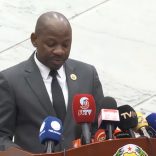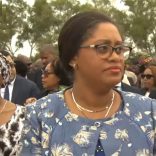Mozambique: Government delays salary adjustment to the second half of the year
IMF in town – By Joseph Hanlon

In File CoM
An IMF mission led by Michel Lazare, IMF Mission Chief for Mozambique, is in Maputo for an unusually long time (1-12 December) to “initiate discussions … on a new program”, and the IMF pointedly notes that “discussions will continue in the first part of 2017”. In practice, the earliest that any agreement could be reached is mid-2017.
The IMF Board on 21 November “found that the Republic of Mozambique had breached [its] obligation, as the authorities had reported inaccurate data with respect to the stocks of central government and central government guaranteed debt.” The new information means that all of the IMF reviews since 2010 must be recalculated. In practice, a major purpose of the mission is to sort out the books – in particular the complex internal debts of the government and state companies to each other – and reassess the state of the economy. The mission will try to confirm that Kroll has full access and will talk to Mozambique’s debt advisors on progress on rescheduling. And it will look for further policy adjustments and austerity.
The 21 November Board statement said that the failure to report external borrowing of $1.37 bn (10.6% of 2015 GDP) constituted “misreporting” and “a breach of obligation”. The Board “noted that the previously undisclosed debt has played a key role in making Mozambique a heavily indebted country, and has placed the government’s finances and international reserves under considerable strain.”
Mozambique’s debt is in dollars, but debt ratios are calculated in local currency, Meticais. Thus the 100% devaluation, triggered by the revelation of the secret debt, has caused the value of the total debt to double, making Mozambique debt distressed.
The Board’s 21 November statement was carefully nuanced. The “Executive Board welcomed remedial measures already taken, including the launch by the Public Prosecutor of a criminal investigation into the debts incurred by certain state-owned entities, and an independent audit of these entities by an international auditing company. Executive Directors did not to require any further action but called on the authorities to implement the announced measures in a comprehensive and timely manner.” In other words, continued negotiations on an IMF programme depend on continuing criminal investigations and cooperation with the audit.
Mozambique needs money. An IMF agreement would release at least the promises of money from the IMF, World Bank, and European Union, which would sharply reduce the fiscal problems and shortage of dollars.
By Joseph Hanlon













Leave a Reply
Be the First to Comment!
You must be logged in to post a comment.
You must be logged in to post a comment.